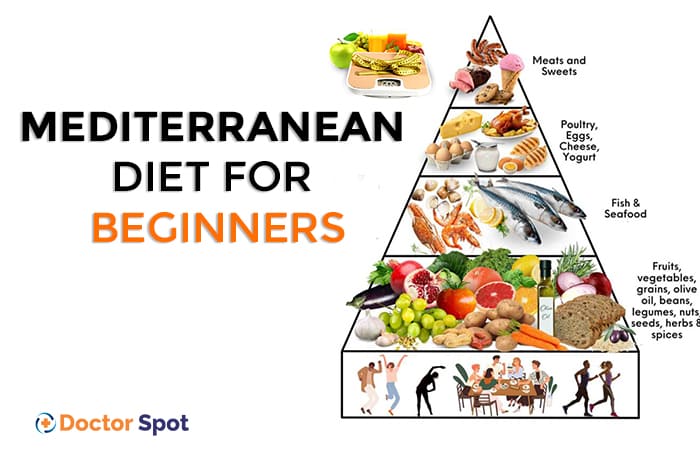Mediterranean Diet for Beginners

Are you looking to improve your health, boost your energy levels, and indulge in delicious meals? Look no further than the Mediterranean diet. This ancient eating pattern is not just a diet—it’s a way of life that promotes longevity and overall well-being. In this comprehensive guide, we will walk you through everything you need to know to get started on the Mediterranean diet journey.
What is the Mediterranean Diet?
The Mediterranean diet is inspired by the traditional eating habits of people living in countries like Greece, Italy, Spain, and southern France. It is characterized by a high consumption of fruits, vegetables, whole grains, legumes, nuts, seeds, olive oil, and fish. Red meat and processed foods are limited, while moderate amounts of dairy products and red wine are enjoyed.
Key Components of the Mediterranean Diet:
- Plant-based Foods: Fruits, vegetables, whole grains, legumes, nuts, and seeds are the foundation of the diet.
- Healthy Fats: Olive oil is the primary source of fat, providing monounsaturated fats that are beneficial for heart health.
- Lean Proteins: Fish and poultry are preferred over red meat, with seafood being a staple.
- Moderate Dairy: Yogurt and cheese are consumed in moderation.
- Flavorful Herbs and Spices: Mediterranean dishes are seasoned with herbs like oregano, basil, and mint, as well as spices like garlic and cumin.
Benefits of the Mediterranean Diet
The Mediterranean diet has been extensively studied and has been linked to numerous health benefits. Incorporating this eating pattern into your lifestyle can:
- Reduce the risk of heart disease and stroke
- Improve blood sugar control and insulin sensitivity
- Aid in weight management and promote healthy aging
- Lower inflammation levels in the body
- Enhance cognitive function and reduce the risk of Alzheimer’s disease
Research-Backed Evidence:
According to a study published in the New England Journal of Medicine, participants who followed the Mediterranean diet experienced a 30% reduction in cardiovascular events compared to those on a standard low-fat diet.
How to Transition to the Mediterranean Diet
Making the switch to the Mediterranean diet doesn’t have to be daunting. Here are some practical tips to help you ease into this lifestyle:
- Start Slow: Gradually introduce Mediterranean-style meals into your weekly menu.
- Stock Up on Staples: Fill your pantry with whole grains, legumes, olive oil, and spices.
- Experiment with Recipes: Explore Mediterranean cuisine through online recipes and cookbooks.
- Enjoy Meals Mindfully: Embrace the ritual of dining, savoring each bite and connecting with loved ones.
“The Mediterranean diet is more than just food—it’s about embracing a lifestyle that nurtures your body and soul.”
Conclusion
Embarking on the Mediterranean diet journey can be a transformative experience for your health and well-being. By incorporating the principles of this timeless eating pattern into your daily life, you can enjoy flavorful meals, boost your vitality, and reap the long-term benefits of improved health. Start today and savor the delicious flavors of the Mediterranean for a healthier tomorrow.
Remember, it’s not just a diet—it’s a celebration of life.
Also Read: Best Foods That Boost Your Stamina Naturally